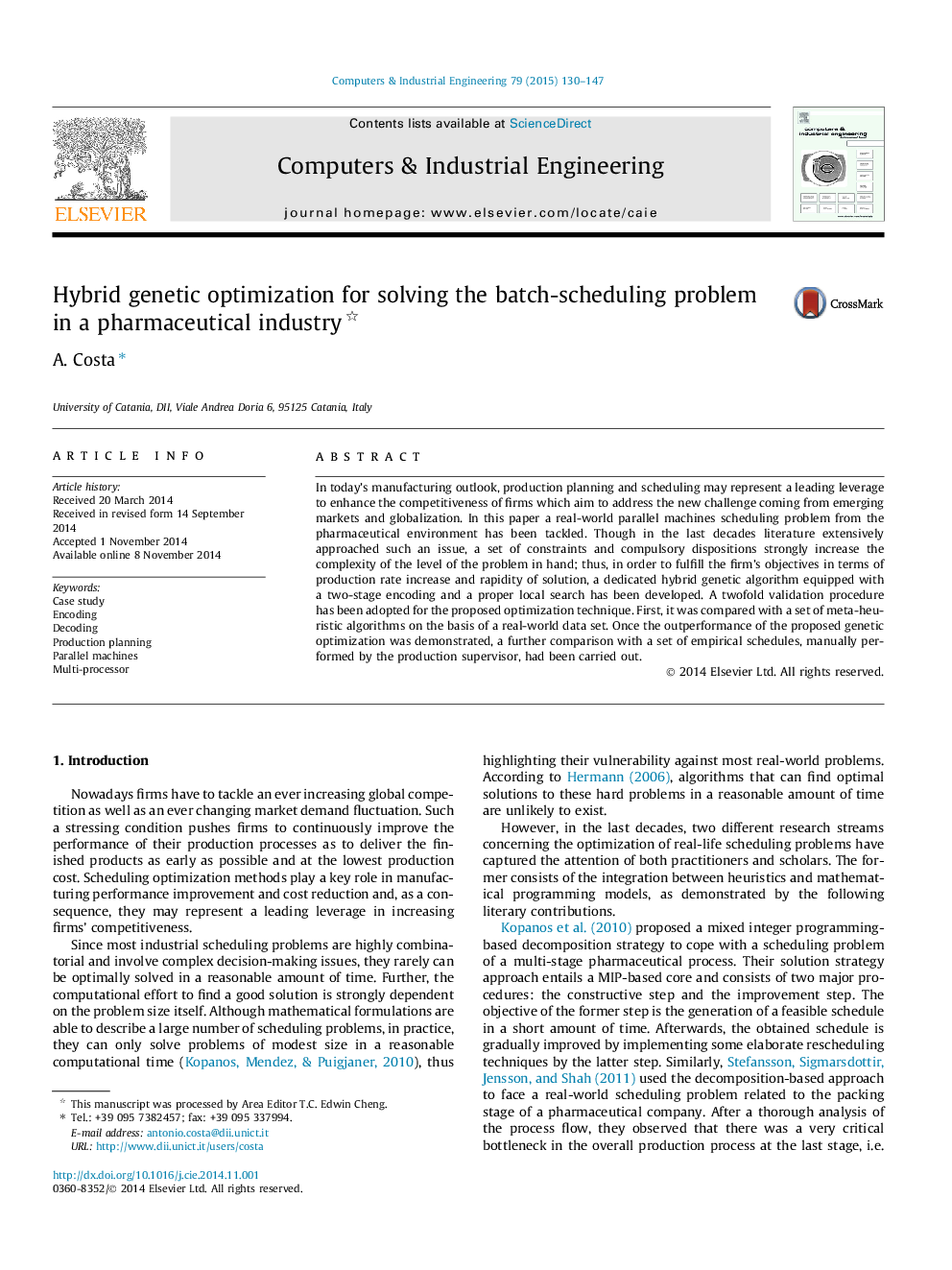| Article ID | Journal | Published Year | Pages | File Type |
|---|---|---|---|---|
| 1133749 | Computers & Industrial Engineering | 2015 | 18 Pages |
•We study a real-world scheduling problem from the pharmaceutical industry.•We develop a hybrid genetic algorithm equipped with a double encoding scheme.•We compare the proposed approach with other metaheuristic techniques.•An experimental validation emphasizes the effectiveness of the proposed approach.
In today’s manufacturing outlook, production planning and scheduling may represent a leading leverage to enhance the competitiveness of firms which aim to address the new challenge coming from emerging markets and globalization. In this paper a real-world parallel machines scheduling problem from the pharmaceutical environment has been tackled. Though in the last decades literature extensively approached such an issue, a set of constraints and compulsory dispositions strongly increase the complexity of the level of the problem in hand; thus, in order to fulfill the firm’s objectives in terms of production rate increase and rapidity of solution, a dedicated hybrid genetic algorithm equipped with a two-stage encoding and a proper local search has been developed. A twofold validation procedure has been adopted for the proposed optimization technique. First, it was compared with a set of meta-heuristic algorithms on the basis of a real-world data set. Once the outperformance of the proposed genetic optimization was demonstrated, a further comparison with a set of empirical schedules, manually performed by the production supervisor, had been carried out.
